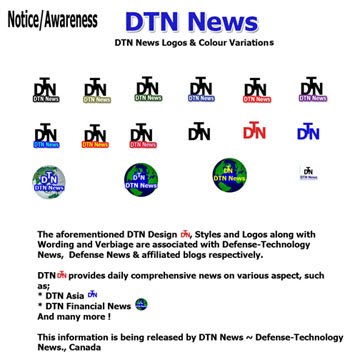 Source: DTN News - - This article compiled by K. V. Seth from reliable sources DW
Source: DTN News - - This article compiled by K. V. Seth from reliable sources DW(NSI News Source Info) TORONTO, Canada - March 8, 2014: More than one third of Europe's gas needs are covered by Russian gas. The crisis in Ukraine has kindled fears that Russia could stop the flow.
The crisis in Ukraine is not only about politics, it's also about natural gas. Russia, a key gas producer, supplies Europe with about a third of the gas it needs - and Ukraine is an important transit state.
Almost 40 percent of the gas used in Germany comes from Russia. The Baltic States' dependency is even greater: Russia supplies them with almost 100 percent of the gas they need. Ukraine, too. The crisis in Ukraine, which also depends on Russian gas, has unleashed increasing concern about Europe's energy supplies. Moscow has been known to employ energy giant Gazprom to serve political ends.
Twice since 2006, Russia cut gas flows to Ukraine because of disagreements over transit conditions and prices. Russia also suspected Ukraine of siphoning gas from Russian pipelines passing through the country. Gazprom announced this week it would cancel a 30 percent discount on natural gas for Ukraine, and demanded the country settle its debts - a harsh blow for a country teetering on the brink of bankruptcy.
What if the dispute escalates and Moscow stops the flow of gas? Experts have said Western Europe would probably not be that badly affected.
"That wouldn't affect the EU very much," said Jonas Grätz of the Center for Security Studies (CSS) in Zurich, adding a cut would hit eastern nations like Hungary and Bulgaria more than states in Western Europe, where the gas reservoirs are still filled to about 60 percent - enough for up to four months.
"There's a glut on the international gas markets," said Claudia Kemfert, an energy expert with the Berlin-based German Institute for Economic Research (DIW). But Kemfert said in the long run, Europe is insufficiently prepared to purchase a third of the gas it needs elsewhere. "That is true in particular for countries in Southeast Europe that buy large amounts of gas in Russia."
Russia has many ways to transport natural gas -it could easily cut off Ukraine
If transit via Ukraine were blocked, Russian gas could instead flow through the Nord Stream Pipeline that takes natural gas from Russia to Germany under the Baltic Sea. Then, there's the Yamal-Europe natural gas pipeline which runs across Belarus and Poland to Germany.
Should Russia halt all shipments, tankers could bring liquid natural gas to Europe from the Middle East. But Germany, for one, doesn't have a terminal to unload such tankers. In case of a longer disruption, gas buyers could also turn to Algeria and Norway.
Russia's biggest customer
Both the EU Commission and the German government maintain that the Crimea crisis does not endanger gas supplies to the European Union. Germany Economy Minister Sigmar Gabriel pointed out that Russia has always honored its contracts with Western Europe.
"There's no reason to be concerned at the moment," EU Energy Commissioner Günther Oettinger said, adding that the gas reserves are actually higher than they were last year due to Europe's mild winter temperatures.
Russia is not likely to cut gas supplies to Europe. "Russia heavily depends on energy deliveries to Europe," Kemfert said. "Some 60 percent of Russia's state income is due to oil, gas and coal sales - and a large part of that goes to Europe."
Halting all gas exports to Europe would hurt Russia's economy
Grätz added that "a different approach was needed to be taken to Russia's dependence on the European market." One possibility, he said, would be the strict implementation of European market rules on all dealings with Gazprom. Russian President Vladimir Putin has often used the energy giant to serve his own geopolitical goals. If European countries cut imports of Russian energy, it would negatively impact Gazprom as 60 percent of its revenue comes from the European market.
"When Gazprom has problems then Putin will also have problems because he needs the company in order to achieve projects in Russia, such as Sochi, and the supply of gas to rural regions as well as using the company as a means to conduct foreign policy," Grätz said.
Pressure on Ukraine
Russia is currently the European Union's third largest trading partner. In 2012, Russia exported 215 billion euros ($300 billion) worth of goods to the EU and imported 123.4 billion euros from the 28-member bloc. Germany currently represents Russia's third largest trading partner, exporting mainly cars, machines and chemical products. Russia, however, is Germany's 11th most important trade partner, just behind Poland.
The situation in Ukraine, however, is very different, and the EU is concerned about the country's energy supply. After meeting this week with EU energy ministers, Oettinger said the bloc was considering helping Kyiv pay its energy bill. It is also considering sending gas to Ukraine in pipelines that run through Slovakia.
Related Images on Ukraine Crisis;
*Link for This article compiled by K. V. Seth from reliable sources DW
*Speaking Image - Creation of DTN News ~ Defense Technology News
*Photograph: IPF (International Pool of Friends) + DTN News / otherwise source stated
*This article is being posted from Toronto, Canada By DTN News ~ Defense-Technology News Contact:dtnnews@ymail.com
©COPYRIGHT (C) DTN NEWS DEFENSE-TECHNOLOGY NEWS


















 Russia Remains Key Arms Supplier for India – Rosoboronexport
Russia Remains Key Arms Supplier for India – Rosoboronexport



